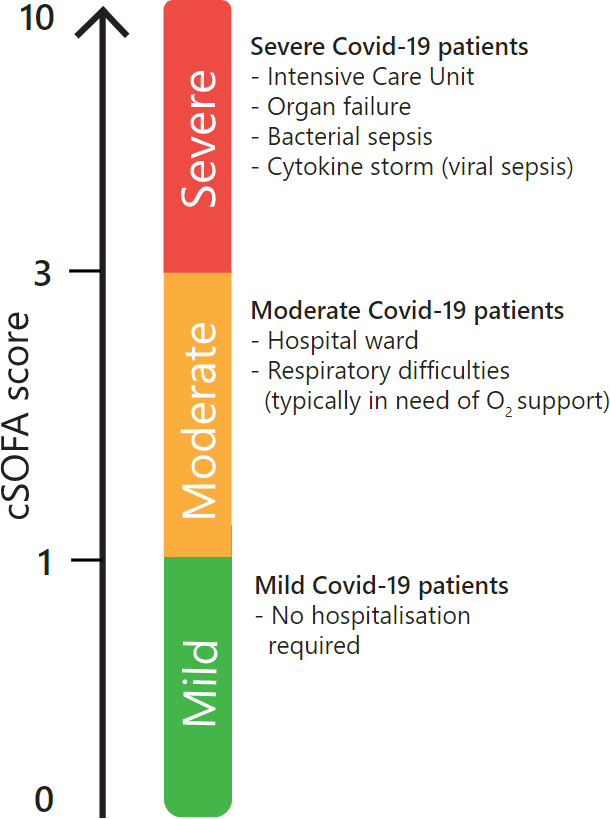The Quickest cSOFA COVID-19 Severity Score at the Point of Care

The COVID-19 Sequential Organ Failure Assessment (cSOFA) score allows for an immediate assessment of the patient’s clinical deterioration to support your medical decision.
The cSOFA COVID-19 score is obtained through the sum of a simple respiratory score (RESP) along with the blood biomarker testing results for Pancreatic Stone Protein (PSP).
PSP is easily quantified from a single drop of blood using the CE-marked IVD test on the abioSCOPE®.

Identify COVID-19 Patients at Risk of Deterioration
The cSOFA COVID-19 score can be obtained in 7 minutes from a drop of blood at the point of care. A higher cSOFA score is indicative of a more severe COVID-19 patient. The unique abilities of the PSP biomarker, which rises early on in sepsis (a severe complication of COVID-19) enables the stratification of patients before clinical signs and symptoms become overt.
Facilitating Patient Triage
The fast and highly accurate cSOFA severity score enables healthcare professionals to efficiently assess the likelihood of clinical deterioration of COVID-19 patients within 7 minutes.
This facilitates patient triaging and assignment to the appropriate level of care right from admission, whilst liberating vital clinical resources, key to optimising patient management.
FAQs
The cSOFA score makes use of the PSP biomarker, which increases rapidly in blood in patients with severe infections and multiple organ dysfunction. Changes in the concentration of PSP in blood can be easily measured on the IVD CAPSULE PSP within the relevant measuring range and combined with a simple respiratory score.
The cSOFA score can be measured on adult patients with a confirmed SARS-CoV-2 infection in order to assess the severity of the severe acute respiratory syndrome coronavirus 2 (SARS-CoV-2) infection.
By stratifying patients with the help of the cSOFA score, patients can be assigned to the appropriate level of care right from admission. The cSOFA score is determined in 7 minutes and can be done by any healthcare professional, optimising patient management.
In times of healthcare system overload, it is important to have tools that help guide patients through the hospital system efficiently, whilst also liberating vital clinical resources.